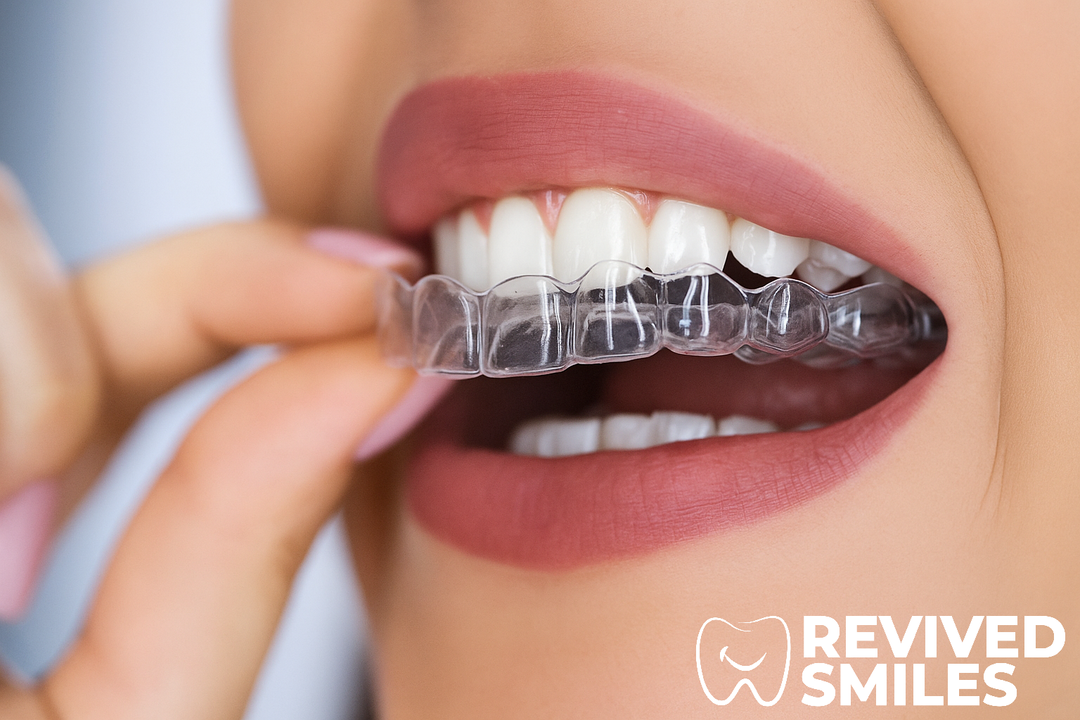How Long It Takes to Get Used to Dentures

Getting dentures is a significant step toward restoring your smile and improving your oral health. However, the adjustment period that follows can be challenging as your mouth gets used to the new appliance. If you’re wondering how long it takes to get used to dentures, you’re not alone. In this blog post, we’ll explore what you can expect during the adjustment period, provide tips to help you adapt more quickly, and discuss how dentist-quality dentures from Revived Smiles can make the transition smoother.
What to Expect During the Adjustment Period
The Initial Days:
- Discomfort and Soreness: It’s common to experience some discomfort and soreness during the first few days of wearing dentures. Your gums and jaw muscles are adjusting to the new appliance, which can cause minor irritation.
- Increased Saliva Production: Your mouth may produce more saliva than usual as it gets used to the dentures. This is a natural response and should subside as your mouth adapts.
- Difficulty Speaking and Eating: You might find it challenging to speak clearly and eat certain foods initially. This is because your mouth muscles are learning to function with the new dentures in place.
The First Few Weeks:
- Improved Comfort: As the days progress, your mouth will begin to adapt to the dentures, and you should start to feel more comfortable. Sore spots may still occur, but they should become less frequent.
- Easier Eating and Speaking: Over the first few weeks, your ability to eat and speak with dentures will improve. You’ll become more accustomed to the feel of the dentures, and everyday activities will become easier.
- Gum Sensitivity: Your gums may still be sensitive during this period, especially if you’ve had teeth extracted. It’s important to follow your dentist’s advice on caring for your gums during this time.
Long-Term Adjustment:
- Full Adaptation: It typically takes about 3 to 6 months for most people to fully adapt to wearing dentures. By this time, the dentures should feel like a natural part of your mouth, and you should be able to eat, speak, and smile with confidence.
- Ongoing Maintenance: Even after you’ve fully adapted, regular maintenance and care are essential for ensuring the long-term comfort and functionality of your dentures.
Tips for Adjusting to Dentures
The adjustment period can vary from person to person, but there are several things you can do to make the process smoother and more comfortable:
1. Practice Speaking
- Why It Helps: Speaking with dentures can be tricky at first, but practicing can help you adjust more quickly. Reading aloud, repeating challenging words, and conversing with friends or family can help you get used to the way your dentures feel and function when speaking.
- Tip: Start with simple words and phrases, gradually moving to more complex sentences as you become more comfortable.
2. Start with Soft Foods
- Why It Helps: Eating with dentures can be challenging initially, especially with harder or stickier foods. Starting with soft foods can make the transition easier and help you get used to chewing with dentures.
- Tip: Choose foods like mashed potatoes, yogurt, applesauce, and scrambled eggs. As you become more comfortable, gradually introduce firmer foods.
3. Use Denture Adhesive
- Why It Helps: Denture adhesive can provide extra stability, making your dentures feel more secure and reducing the risk of slipping or shifting. This can boost your confidence, especially during the early days of adjustment.
- Tip: Apply a small amount of adhesive to clean, dry dentures. Avoid using too much, as this can cause discomfort.
4. Maintain Good Oral Hygiene
- Why It Helps: Keeping your dentures and mouth clean is crucial for preventing infections, sores, and other issues during the adjustment period. Proper oral hygiene also helps you feel more comfortable with your dentures.
- Tip: Clean your dentures daily with a denture brush and mild denture cleaner. Don’t forget to rinse your mouth and brush your gums, tongue, and palate to keep them healthy.
5. Visit Your Dentist Regularly
- Why It Helps: Regular dental visits are essential for ensuring that your dentures fit properly and that your mouth is adjusting well. Your dentist can make any necessary adjustments to improve comfort and functionality.
- Tip: Schedule follow-up appointments as recommended by your dentist, and don’t hesitate to reach out if you experience any persistent discomfort or issues.
Conclusion: Get Comfortable with Dentist-Quality Dentures from Revived Smiles
Adjusting to dentures takes time and patience, but with the right approach, you can make the transition smoother and more comfortable. Remember that the adjustment period is temporary, and soon enough, your dentures will feel like a natural part of your everyday life.
At Revived Smiles, we understand the importance of a comfortable, well-fitting denture. Our dentist-quality dentures are designed to provide the best possible fit and functionality, helping you adapt more quickly and enjoy your new smile with confidence.
Visit Revived Smiles today to explore our range of high-quality dentures and take the first step toward a comfortable, confident smile.





Leave a comment